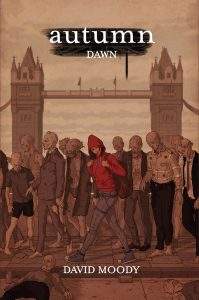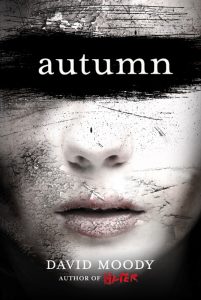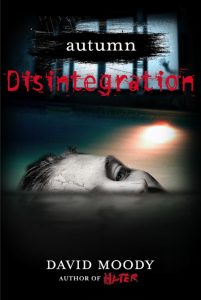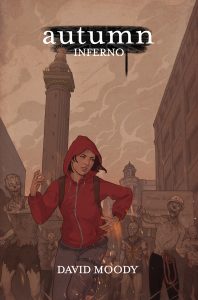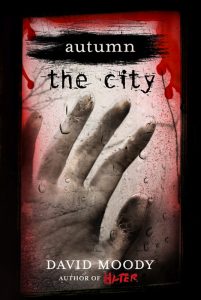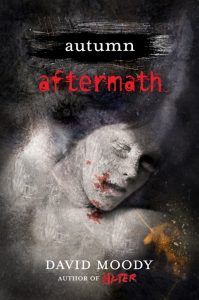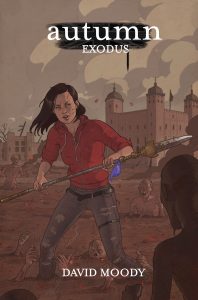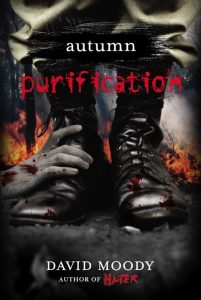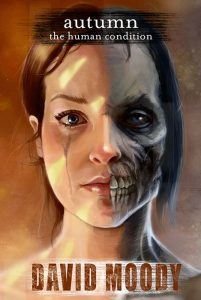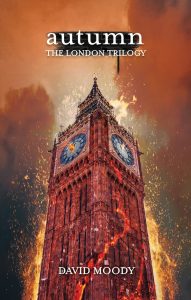Barely a Sound (part iv)
SUMMER
It’s almost a year to the day since the human race was all but erased from the face of the earth. In that time, the centre of Birmingham has been completely transformed. The block-paved pedestrianised routes running through the main shopping district are now wildly uneven. Weeds have grown up between the bricks, forcing them out of position. In places, moss has grown unchecked, along the ground and up walls, covering everything like a carpet, a shroud. Another few years like this, and it will be hard to believe there was ever a city here at all. If it wasn’t for the plastic and the Perspex and the other non-degradable debris still scattered around, if you half-closed your eyes you could convince yourself there’d never been anything else here.
The ruins of the collapsed metro supermarket at the end of Needless Alley are covered with fresh vegetation, wild like a meadow. Right now, at the height of summer, the plant life is prevalent. Later in the year it’ll die back, and the remains of streets and buildings and cars and people will be more visible again. Not that there will be anyone here to see it.
There’s an eerie calm here now. The temperature is particularly high today, the sun beating down from a cloudless sky. Birds swoop down from the trees that line New Street, diving to the ground then climbing back to safety in the branches. Many have built their nests elsewhere this year. They will be safer in more obscure locations such as the open floors of office blocks, and amongst the cranes and scaffolding looming over the shells of part-built places that’ll never now be completed.
Everything that has survived is having to adapt to this new normal. A new ecosystem is becoming established, a hierarchy. In the earliest days of the disaster, huge packs of rats and other rodents roamed unchallenged, emboldened by the lack of humans and the noise they used to make. They gorged on the rotting meat that was in plentiful supply back then, but which has since declined. Now many of the rats have disappeared too. There are far fewer now, but those that have survived are stronger, more virulent. They made it through the bitter winter, feeding on the weaker of their brethren. They present a formidable challenge to the stray dogs and cats that mooch along the silent streets.
This is just the beginning.
In the parts of the world from which people disappeared before last year’s event – Pripyat and the area around the Chernobyl nuclear power station, for example – the wildlife blossomed over the decades that followed. Who knows what creatures will inhabit Birmingham in the future? The only certainty is that they won’t be human.
There are still a handful of people left alive. Most are living in groups gathered in places well away from dead cities like this, rudimentary communities. Others have opted to lead a more solitary existence. Some chose to do this because it’s more practical, others because it is less painful. As we approach the first anniversary of the disaster, there are those who try to cling onto the past, trying to reclaim former glories and rebuild their lives in the image of what came before. The bad news for them is that it’s not going to happen. Although some knowledge remains, the infrastructure upon which society was built has been destroyed and will never recover. In the whole of the United Kingdom there are only a handful of groups with more than fifty members. It’s overwhelmingly likely that none of these groups will survive long-term. Even if they do, what of the next generation? Will there even be a next generation worth speaking of? How will children who never lived in the old world be able to understand and restore it?
For the most part, the people who have chosen to live alone are just seeing out their days. They’ve come to terms with the futility of trying to rebuild. Many are haunted, tormented by everything they’ve been through. Others are more philosophical about their fate. Some have made peace with themselves among the ruins.
Today, a lone woman is climbing the huge rubble mound that blocks the end of what used to be Needless Alley. She lived in the suburbs of Birmingham once, way back when, before moving down south. She studied at the university, sharing a flat in Harborne with a man she thought she’d share her life with until their careers took them in opposite directions. It ended amicably enough, but the fact it ended at all still haunts her. Today, Orla lives wherever she happens to be, no fixed abode… no abode at all. She exists from day to day, meal to meal. She’s in her late thirties, but she feels the way she expected to feel in her seventies. Physically, she’s strong. She’s lithe and muscular, her weathered skin tanned and rough. She wears strong boots and little else today because it’s so hot. Everything she owns is packed inside the tatty rucksack on her back.
It’s hard to work out exactly where she is, it’s all changed so much. The general outline of the road she was just following was familiar, but nothing looks anything like she remembered. She’s not even completely sure why she’s come back here. There are better places to scavenge, far safer places too. She thinks she’s probably come back here to say a final goodbye to the life she used to lead, to the person she used to be.
She hears something behind her, and glances back over her shoulder as she climbs. Something catches her eye. It’s the colour blue. It so rarely occurs in nature that it always stands out, even more so these days. She sees that it’s a company logo on the front of a building, still partially attached but hanging down at an odd angle. She squints to make out the letters. EON. Ah yes, she remembers, ODEON. It was a cinema. And her mind briefly fills with memories she thought she’d either suppressed or lost, of people and places and feelings long gone.
It hurts.
She’s starting to wish she hadn’t come back.
And yet she keeps going, because one thing that definitely hasn’t died is her curiosity, and now that she knows exactly where she is, she wants to see more. She continues up along the echoing ruin of Needless Alley and emerges near the cathedral. The sacred building itself remains in relatively good shape, but the bars and restaurants she once loved are grotesque shadows of their former selves. She pauses outside one particular place, thinking about that time with Justin when they talked about getting a place together and promised to stay together forever, and her body’s suddenly so heavy with emotion that she can hardly keep going.
She walks across the overgrown space outside the cathedral where they used to meet for lunch sometimes. The grass is knee-high. Hard to believe they used to have a Christmas market here each year. Hard to believe things like Christmas markets were ever real. On the other side, she weaves through the interspersed, rust-eaten wrecks of cars, sunk down on their flattened tyres. She creeps along the street to the front of a building that wasn’t here when she used to live in Birmingham. It seems to go up forever. From the bottom, it looks like it stretches right up into the sky. She thinks that because it’s new (in relation to everything else), it might be safer.
It takes Orla more than an hour to climb up to the top floor. She knows she has nothing much to fear here because gravity generally drags problems down, not up, and even if there are bodies up here, they’ll be long past the point of no return. It’s several months now since she saw the last of them move.
The glass in the picture windows of the top floor restaurant remains intact. She thinks she might stay here for a while and rest. It’s stiflingly hot, and after hunting through the kitchens and finding a little edible food, she goes out onto the terrace.
There’s barely a breeze out here.
She feels like she’s sitting on the top of the world, but it doesn’t feel like an achievement, and there’s no cause for celebration. Instead, she feels an overwhelming sadness. She really should not have come back. The view reveals the true extent of everything she’s lost because from up here looking down, she can hardly see the city. It’s all largely green and featureless.
It’s gone.
Almost all of it.
Just about everything.
Over to her right, she can just make out the distinctive outline of the city’s famous library. It’s angular, like a pile of stacked boxes of different sizes. Seeing it makes her think about books. She stopped reading them because of the pain of looking back. Justin was a book nerd. Science-fiction and fantasy, not her thing at all. War of the Worlds was his favourite. She used to scoff at the ending when the Martians were wiped out by a germ. She used to think, if the Martians were smart enough to figure out space travel, surely they’d have considered the risk of infection?
She’s in thinking mode now. Doesn’t often get the chance. Usually, it’s all about staying alive: keeping warm and making sure she’s fed and watered. Moments like this are increasingly infrequent. She’s thinking, nice one, HG Wells, because he knew what he was talking about. We got caught out by a virus too.
She sits on the edge of the roof and dangles her feet over the side. It’s a long way to fall, but that doesn’t seem to matter. When this first started, about this time last year, it felt like the end. It’s not, and she understands that now. It’s actually the beginning of a new phase, just not for her. It’s the start of a new era, one that she doesn’t think she belongs in.
The thing she really can’t get her head around, though, the one thought she can’t shake, is this: the world prior to last September was built over hundreds and hundreds of years filled with energy, innovation, communication, and noise. Yet it was destroyed in no time at all. Sure, it’s taken almost a year to reach this stage, but the damage was done in a matter of minutes, the blinking of an eye. All the noise and bluster humanity made over all those years ultimately counted for nothing. All that striving for supremacy, all those wars fought and lost for land or riches or ideologies… all of it was wasted effort. Imagine what could have been done with that time instead?
In the end, it was all wiped out with barely even a sound.

